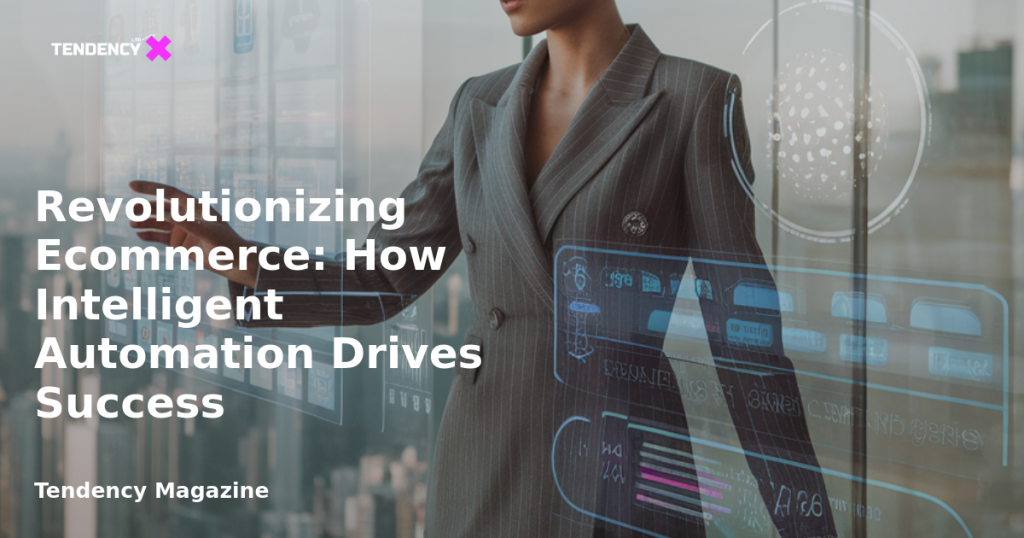Revolutionizing Ecommerce: How Intelligent Automation Drives Success

Table of Contents
- Understanding Intelligent Automation (IA)
- How Intelligent Automation Works
- Key Benefits of Intelligent Automation
- Ecommerce Intelligent Automation Use Cases
- Intelligent Automation FAQ
- Conclusion
Understanding Intelligent Automation (IA)
Intelligent automation (IA) is a synergy of artificial intelligence (AI) and traditional automation processes designed to enhance business workflows. By integrating AI’s cognitive capabilities with automation, IA streamlines operations that typically require manual intervention. This powerful combination, often referred to as cognitive automation, optimizes everything from logistics management to customer interactions, enabling businesses to achieve new levels of efficiency, cost savings, and customer satisfaction.
How Intelligent Automation Works
Intelligent automation operates through a fusion of several advanced technologies:
- Artificial Intelligence (AI): Serving as the brain of the operation, AI uses cognitive technologies such as deep learning to interpret data and make informed decisions.
- Robotic Process Automation (RPA): RPA employs software bots to handle repetitive tasks like data entry and report generation. When combined with AI, RPA becomes more adaptable and precise.
- Business Process Management (BPM): BPM provides a structured framework for managing workflows, ensuring that processes like customer service and order fulfillment are optimized.
- Computer Vision: This technology allows software to recognize and interpret visual information, enhancing automation in areas such as inventory management and personalized marketing.
- Optical Character Recognition (OCR): OCR converts images into readable text, streamlining tasks such as processing invoices and analyzing product labels.
- Natural Language Processing (NLP): NLP enables machines to understand and respond to human language, powering customer service chatbots and automating email responses.
By integrating these components, intelligent automation improves workflows and enhances the overall customer experience.
Key Benefits of Intelligent Automation
Intelligent automation is a cornerstone of digital transformation, offering numerous advantages for ecommerce businesses:
- Cost Savings and Productivity: By automating repetitive tasks, IA allows employees to focus on more strategic activities, leading to increased productivity and resource efficiency.
- Enhanced Accuracy: IA minimizes human error by analyzing large volumes of data quickly and accurately, providing actionable insights for data-driven decision-making.
- Improved Customer Experience: With faster response times and personalized interactions, IA enhances customer satisfaction and loyalty.
Ecommerce Intelligent Automation Use Cases
Intelligent automation is transforming various aspects of ecommerce operations:
Customer Service
IA enhances customer service by utilizing chatbots that access customer data to provide quick and accurate support. These chatbots operate 24/7, improving customer engagement and streamlining processes like order tracking and returns.
Dynamic Pricing
In a competitive ecommerce landscape, dynamic pricing is crucial. IA analyzes real-time data, including competitor prices and customer behavior, to adjust prices dynamically, ensuring competitiveness and maximizing profits.
Order Fulfillment
IA optimizes supply chain management by streamlining order processing and shipment tracking. It ensures efficient routing of orders and reduces errors, resulting in faster deliveries and fewer returns.
Inventory Management
Intelligent automation tools manage inventory in real time, predicting demand and automating restocks. This reduces fulfillment time, cuts costs, and enhances supply chain responsiveness.
Product Recommendations
By analyzing customer behavior and demographics, IA delivers personalized product recommendations, boosting sales and enhancing the shopping experience.
Intelligent Automation FAQ
What is the difference between intelligent automation and RPA?
Intelligent automation combines RPA with AI to handle complex tasks, while RPA alone automates simple, rule-based tasks.
What is the difference between AI and intelligent automation?
AI focuses on learning and problem-solving, while intelligent automation integrates AI with automation tools to manage complex processes.
What are examples of intelligent automation?
Examples include chatbots for customer service, personalized product recommendations, and intelligent inventory management.
Conclusion
Intelligent automation is revolutionizing the ecommerce landscape by combining the strengths of automation and artificial intelligence. It empowers businesses to operate more efficiently, deliver superior customer experiences, and adapt to changing market demands. As ecommerce continues to evolve, intelligent automation will play a pivotal role in driving success and innovation. By embracing these technologies, businesses can stay ahead of the competition and create seamless shopping experiences that delight customers and drive growth.
2025 Tendency LTD. All rights reserved.

